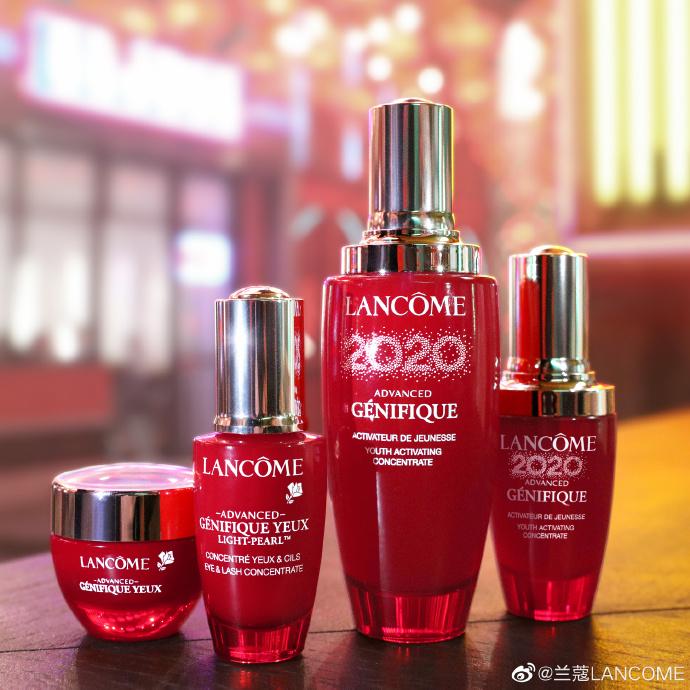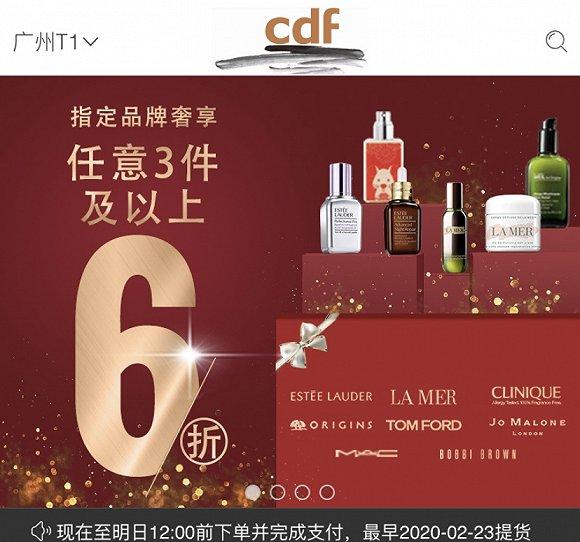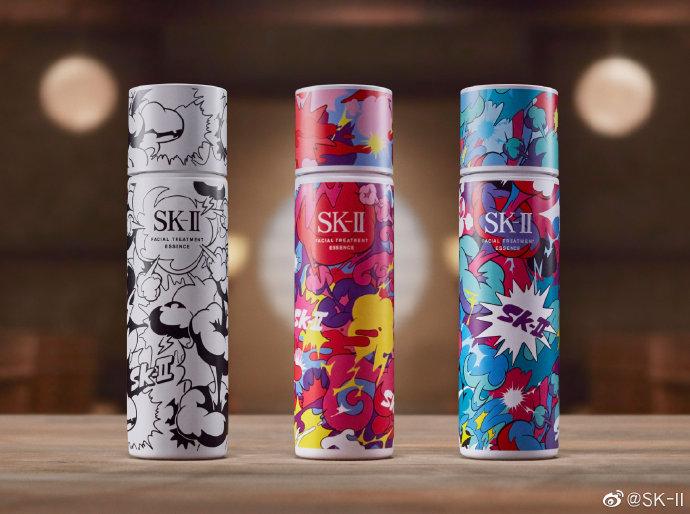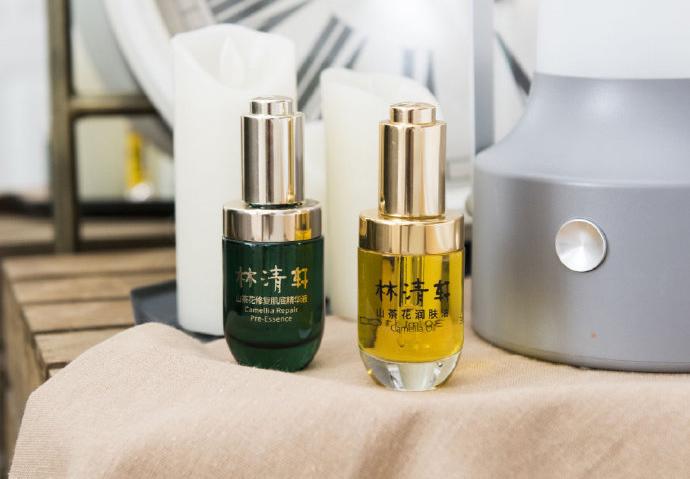Reporter | Viann
Editor | Zhou Zhuoran
Since late January, Simei, who has been isolated at home, has found that cosmetics are useless. Due to the inconvenience of going out and poor logistics, she hardly bought beauty products.
During the epidemic, there were not a few people who reduced the consumption of beauty products. According to the data obtained by Bain, a management consulting company, and Alibaba Tmall, the online sales of beauty products decreased by 30% from the first day of the first month to the thirteenth day of the first month (January 25th to February 6th) in the Spring Festival in 2020, among which the high-end beauty products were more affected, with a decrease of 40%.
Estee Lauder’s performance fluctuated greatly during the epidemic. After combing the data of ECdataway Dataway, we found that the brand’s sales dropped by more than 75% year-on-year in the two weeks from February 8 to February 21. After ranking 100 in the brand sales list, it became the first in Tmall’s beauty care category from February 22 to February 28. This may be because Taobao Live Li Jiaqi broadcasted two Estee Lauder products on February 27.
Shiseido Group previously said that the sales volume of its four top brands in China decreased by more than half during the New Year.
At the same time, affordable beauty brands have been hit relatively lightly.
According to the data of ECdataway Dataway, during the five weeks from January 25th to February 28th, the sales of high-end beauty brands in Tmall beauty category fluctuated greatly, while the low-priced brands such as L ‘Oreal, Perfect Diary, Huaxizi and Yuze remained relatively stable in the top 15 of the weekly sales list.
Although with the passage of time, the beauty category market gradually began to resume growth, the difficulties faced by high-end beauty brands may be long-term.

During the epidemic, the online sales of high-end beauty brands declined significantly. Bain and Tmall explained that the social needs of Generation Z (born in 1995-2009), young people in small towns and cutting-edge white-collar workers declined, and they contributed more than 50% of the sales of this category in 2019, so the sales dropped significantly.
But this is not the whole reason. The frustration of high-end beauty brands is also related to their special brand attributes.
Yu Jian, general manager of Kaidu Consumer Index Greater China, told interface fashion that high-end beauty products, unlike cheap beauty brands, also bear the gift function like luxury goods.
Valentine’s Day is the traditional sales season for high-end beauty brands, but this year’s high-end beauty brands are probably "lover robbery".
After combing the Tmall sales data of ECdataway Dataway, it was found that the sales of high-end beauty brands generally declined on Valentine’s Day and the week before the holiday (February 8-February 14).
Among them, Lancome sales decreased by 12.8%, Estee Lauder sales decreased by 60.2%, Snow Show sales decreased by 41.7%, CPB sales decreased by 44.3% and SK-II sales decreased by 2.3%.
However, in a special period, even if online sales decline, it is a timely help. What makes high-end beauty brands even more headache is that tourism retail, which they regard as a channel for growth, almost completely failed during the epidemic.
Tourism is always closely related to shopping, and the most crowded people in duty-free shops are always the beauty counters with fragrance. According to the data of Generation Research, a French tourism retail research institution, the total sales of tourism retail channels reached 79 billion US dollars in 2018, of which perfumed products accounted for 31 billion yuan. Beauty products are undoubtedly the largest category of tourism retail in the world.
Shiseido Group, Estee Lauder Group and L ‘Oré al Group all emphasized the importance of tourism retail to the group in their financial year 2019 performance reports, and it was even the fastest growing channel for Shiseido last year.
More than a month ago, these beauty groups should have ushered in a small sales peak by taking advantage of the East Wind of Spring Festival travel. However, according to the data of the Ministry of Transport and the Civil Aviation Administration, the national civil aviation passenger flow in Spring Festival travel rush decreased by 47.5% within 40 days (January 10-February 18), of which the passenger flow plummeted by 86% from February 1 to February 18.
People greatly reduce their travel, so naturally they can’t and have no time to shop during the trip.
Shiseido CEO Masahiko Yutani previously revealed that after the outbreak, whether in department stores, pharmacies or duty-free shops, they obviously saw the impact of the decrease in China tourists on sales. Analysts at Mitsubishi UFJ Morgan Stanley Securities believe that Shiseido’s sales in the Asia-Pacific region including China and duty-free shops will decrease by 20%.
Because of the "avalanche" of tourism retail channels, in late February, Estee Lauder Group even offered a huge discount of 60% for three or more brands in duty-free retailers at airports such as duty-free shops in Japan.

Although the epidemic will always pass, high-end beauty brands are still worried that after the epidemic, the target group will become cautious in consumption and will take the initiative to downgrade beauty products.
Since the Chinese New Year, almost all walks of life have heard the news that the company’s cash flow is tight. Startups are struggling to save themselves, and large companies have successively implemented measures such as layoffs and employee pay cuts.
The middle class with houses, cars and loans should have been loyal customers of high-end beauty brands, but an epidemic will force them to grow.
Sun Xiaoji, a financial writer, said in an interview with Interface Culture that the outbreak of the epidemic gave people a rare opportunity to reflect on consumerism.
Sun Xiaoji suggested that people "get rid of the illusion of the middle class", control their desire for consumption, increase their desire for income, use their money for investment and savings, and don’t buy meaningless goods. "When you have to spend money, you can treat every expenditure as an investment."

However, consumers’ demand for high-end beauty products still exists, and brands also have opportunities to seize.
According to the data of the business staff, in February, the number of views, collectors and times of collection of Tmall cosmetics increased slightly, and the trend of beauty and skin care categories became more intense, with the number of views, collectors and times of collection rising sharply, with the growth rates of 64.09%, 39.10% and 77.80% respectively.
This means that in the days when people are isolated at home, although they have reduced shopping, they have more time to learn about beauty knowledge. Simei planted many new products, and saved two months’ salary when she went out, so she was going to buy them in buy buy after the epidemic.
L ‘Oré al Group called it the consumption base of beauty products at the presentation of "Cloud Release" China development strategy. Once the situation improves, beauty lovers will release their pent-up shopping desire.
After all, China women’s demand for beauty products should not be underestimated, and now they are the most mature consumers in the Asia-Pacific region.
Tao Jun, Director of Consumer and Market Insight of L ‘Oré al China, said that the overall penetration rate of female consumers in China in skin care products is close to 100%, and all categories are basically the same as those in South Korea, even surpassing South Korea in eye cream and mask, with an average of 13.8 skin care products.
In China, some high-end beauty brands have strengthened the operation of "private domain traffic" in sales channels.
On February 1st and 2nd, the sales of skin care brand Lin Qingxuan’s Wuhan store soared, and its performance rose to the second place in the country. On February 15th, Lin Qingxuan’s offline performance even increased by 45% compared with the same period of last year, and most of these sales were completed by digital platforms such as shopping guides and live broadcasts.
Lin Qingxuan told interface fashion that as of the end of February, 337 direct-operated stores had basically achieved the same performance as the same period of last year through digitalization. From March 1 ST to March 8 th, Lin Qingxuan’s whole network sales increased by 513% year-on-year.
Prior to this, half of Lin Qingxuan’s offline stores had been closed from the first day of the Lunar New Year to the seventh day of the Lunar New Year, and his performance plummeted by 90%. Sun Chunlai, the founder, once said that the cash flow could only last for two or three months at most, and tapping private domain traffic made Lin Qingxuan temporarily out of the predicament.

Fan Yijin, vice president of Tencent Smart Retail, said at the online summit of beauty private domain traffic held by Jumeili and Tencent Advertising that according to interviews with consumers, store managers and shopping guides and BCG analysis of consulting company, when brand store managers and shopping guides have 300 customer friends and 30 ~ 50 customers who interact frequently, and interact with consumers at least once every 1 ~ 2 months, and chat for 3 ~ 5 minutes each time, the service capacity of sales terminals can be improved by 9 ~ 10 times, and the repurchase rate of consumers can be improved.
Lin Qingxuan told the interface fashion that after the epidemic, Lin Qingxuan will also increase the digitalization of live broadcast, and upgrade to Lin Qingxuan’s digital live broadcast store on the basis of existing direct stores, which will increase the user experience and form two dimensions of online content dissemination and offline service experience that reach consumers.
However, private domain traffic is not a treasure mine that all high-end brands can tap. Song Xing, founder and CEO of Fanyan Consulting, said at the online beauty private domain traffic summit that China companies of international beauty brands are limited by overseas headquarters’ control over brand tonality and other aspects, and it is difficult to respond to some domestic trends quickly, so they may miss the tide of private domain traffic.
On the other hand, private domain traffic is a sudden rise during the epidemic. It seems to be a temporary savior, but its future development trend is still not clear. With the gradual overload of private domain information, some users have begun to quit the WeChat group full of sales links.
For mid-to-high-end beauty brands, the way to retain customers may be to enhance brand power and establish emotional ties with them. In Yin Kuo’s view, the middle and high-end beauty products are perceptual goods, and consumers will still be willing to use the customary beauty brands in the long run.
The efficacy of beauty products is difficult to be measured intuitively, and the consumption of high-end beauty products belongs to emotional consumption. What high-end brands need to do is to find the button that triggers consumers’ emotions.
Yu Jian believes that as long as China consumers yearn for a better life, the beauty market will be full of various possibilities.
关于作者